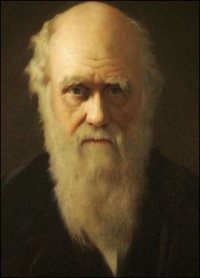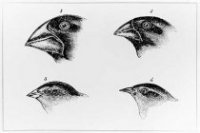 Charles Darwin was a naturalist who observed species in the Galapagos islands during the 19th century. Darwin was interested in animals and insects when he was a child, and often neglected his studies to catch insects. When the British Royal Navy went on a scientific expedition, Darwin was recruited to be a naturalist. He was able to study different animals and plants along the South American coast during this expedition and was amazed by the things he saw. In 1859, Darwin published his book ‘On the Origin of Species”, which is about his theory on evolution.
Charles Darwin was a naturalist who observed species in the Galapagos islands during the 19th century. Darwin was interested in animals and insects when he was a child, and often neglected his studies to catch insects. When the British Royal Navy went on a scientific expedition, Darwin was recruited to be a naturalist. He was able to study different animals and plants along the South American coast during this expedition and was amazed by the things he saw. In 1859, Darwin published his book ‘On the Origin of Species”, which is about his theory on evolution.
Darwin theorized that creatures on the Earth adapted and changed overtime as the Earth changed. This theory was considered scandalous by many people during that time, because the Bible was considered correct. Darwin’s theory was that we all have a common ancestor, and the species evolved differently through natural selection.
 Natural selection was Darwin’s greatest contribution to the theory of evolution. He was able to infer from the different beak sizes of finches he saw on the Galapagos islands that they adapted based on their needs to survive. Natural selection is a theory that species with a characteristic that allows them to survive pass on these characteristics to their offspring. This continues for generation and generations with different characteristics each time from mutations, resulting in the different species available. This is important because it infers that we all come from a common ancestor.
Natural selection was Darwin’s greatest contribution to the theory of evolution. He was able to infer from the different beak sizes of finches he saw on the Galapagos islands that they adapted based on their needs to survive. Natural selection is a theory that species with a characteristic that allows them to survive pass on these characteristics to their offspring. This continues for generation and generations with different characteristics each time from mutations, resulting in the different species available. This is important because it infers that we all come from a common ancestor.






